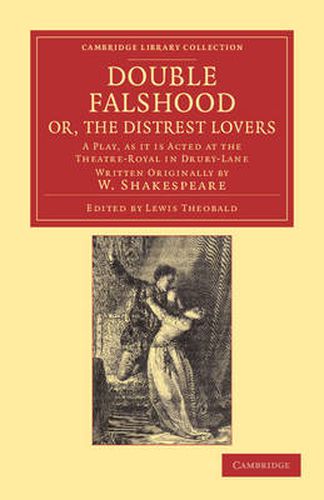Readings Newsletter
Become a Readings Member to make your shopping experience even easier.
Sign in or sign up for free!
You’re not far away from qualifying for FREE standard shipping within Australia
You’ve qualified for FREE standard shipping within Australia
The cart is loading…






Double Falshood was staged at the Theatre Royal in Drury Lane at the end of 1727, and the following year Lewis Theobald (1688-1744) published the text, which was reprinted several times. Theobald was an energetic editor who translated Sophocles’ Electra and Aristophanes’ Plutus for performance in London, wrote and edited many other dramatic works, and caused great controversy in literary circles with his Shakespeare Restored (1726), a critique of Pope’s edition. Scholars have debated for nearly three centuries to what extent, if at all, Double Falshood derives from a lost play by Shakespeare, as Theobald claimed. There is now widespread agreement that it is the only surviving version of Shakespeare and Fletcher’s Cardenio, which was based on episodes from Cervantes’ Don Quixote and is known to have been performed in 1613. Interest generated by the play’s partial acceptance into the Shakespearean canon has also led to modern revivals.
$9.00 standard shipping within Australia
FREE standard shipping within Australia for orders over $100.00
Express & International shipping calculated at checkout
Double Falshood was staged at the Theatre Royal in Drury Lane at the end of 1727, and the following year Lewis Theobald (1688-1744) published the text, which was reprinted several times. Theobald was an energetic editor who translated Sophocles’ Electra and Aristophanes’ Plutus for performance in London, wrote and edited many other dramatic works, and caused great controversy in literary circles with his Shakespeare Restored (1726), a critique of Pope’s edition. Scholars have debated for nearly three centuries to what extent, if at all, Double Falshood derives from a lost play by Shakespeare, as Theobald claimed. There is now widespread agreement that it is the only surviving version of Shakespeare and Fletcher’s Cardenio, which was based on episodes from Cervantes’ Don Quixote and is known to have been performed in 1613. Interest generated by the play’s partial acceptance into the Shakespearean canon has also led to modern revivals.